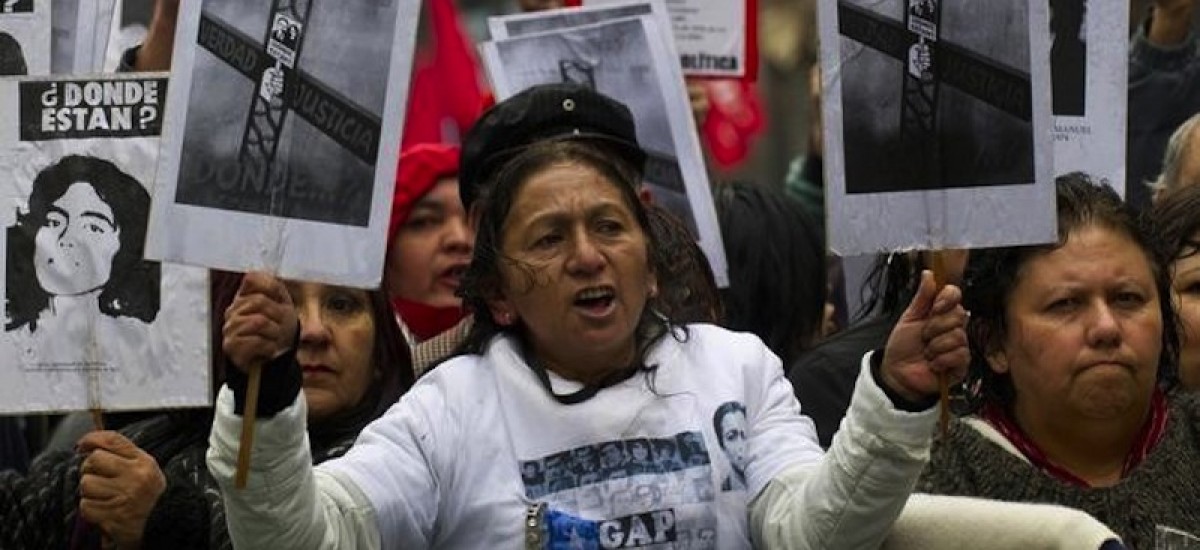Photo by AFP, via Al Jazeera
No, not in Sri Lanka, as readers may have hoped, but in Chile. In Chile, last week, on the fortieth anniversary of the military coup by General Pinochet which overthrew the democratically elected government of Salvador Allende, the Chilean Judges Association issued an anticipated but unprecedented apology for the failure of the judiciary to act as a check and balance against the executive and protect the fundamental rights of its citizens, including their right to life.
The Judges statement said “It must be said clearly and completely that the court system and especially the Supreme Court at that time, failed in their roles as safeguards of basic human rights and to protect those who were victims of state abuse”. Chilean courts rejected some five thousand cases by those who were seeking the court’s intervention in the cases of their missing loved ones. Authorities now believe that over three thousand people were extra judicially killed and over thirty eight thousand tortured by the Pinochet regime in Chile. The case study of Chile provides important lessons for us all.
The context
Firstly in Chile there were abductions of political opponents of the regime by armed gangs in vans (colour unknown). The courts refused to intervene and the practice continued with impunity, with the authorities making ridiculous statements to justify the continuing abduction of opponents of the regime. There was impunity for the perpetrators. It is only now, decades after his removal from power, that the Pinochet era government and security officials responsible for rights violations are being called to account.
Chilean society had an entire sub sector of people that had experienced the trauma of having family members categorized as missing persons. The requirement of accounting for the missing and bringing closure to their survivors and next of kin, took a long while in Chile, but it has finally occurred, with the government initiating a program to trace or account for the missing who are all presumed dead.
Patriotism and Rights abuses
The arguments in favour of violating human rights in defense of the state including especially the right to life are not new. As Cicero argued many centuries ago in the Roman Empire’s Senate “in the fight of good against evil, the laws are silent”. It is in the face of existential threats that societies often tolerate rights abuses as a necessary evil. However more often than not, as in Chile, rights abuses become widespread and often targeted against political opponents of an authoritarian regime. Even in the case of existential threats, the challenge is to minimize and limit the suspension of civil liberties and rights and to do so with due process.
In Chile when a popular military took over the reins of government, it was easy to try and whip up nationalist fervor in support of the regime and argue that any criticism of rights abuses were in fact unpatriotic. However, the paradox is that it is rights abuses that are unpatriotic. If one defines patriotism as love of country and love of her people, then the defense of the basic or fundamental rights of the people would be the highest act of patriotism and the violation of the same, especially the sanctity of and the right to life would be the biggest violation of patriotism.
Sri Lankan rights debate rages
Consequent to the visit of Navi Pillay, the UN High Commissioner for Human Rights, the debate about the state of human rights in Sri Lanka is renewed with vigor. Ms.Pillay who will report to the UN Human Rights Council about Sri Lanka and subsequently issue a more detailed report, had among other things the following to say on the eve of her departure.
“The war may have ended, but in the meantime democracy has been undermined and the rule of law eroded. The 18th amendment, which abolished the Constitutional Council which once recommended appointments to the independent bodies, such as the Elections Commission and Human Rights Commission, has weakened these important checks and balances on the power of the Executive. The controversial impeachment of the Chief Justice earlier this year, and apparent politicization of senior judicial appointments, have shaken confidence in the independence of the judiciary.
I am deeply concerned that Sri Lanka, despite the opportunity provided by the end of the war to construct a new vibrant, all-embracing state, is showing signs of heading in an increasingly authoritarian direction”. She also touched on the Weliveriya shootings, the attacks on mosques and churches as well as the attacks on journalists and media institutions.
Government’s Response
Now the Rajapakse Regime’s response to all this is the blanket denial, that Sri Lanka has no human rights problems, there are no missing persons, no torture, no custodial deaths, no abductions etc. Such a response may suffice for its own core constituency in the Sinhala South, but after Weliveriya, the Matale mass graves and the impeachment of the Chief Justice, one wonders whether even in the South such a response sufficiently resonates. It certainly does not internationally and not because of an international conspiracy against Sri Lanka, but simply because facts are stronger and more enduring and convincing than fiction.

